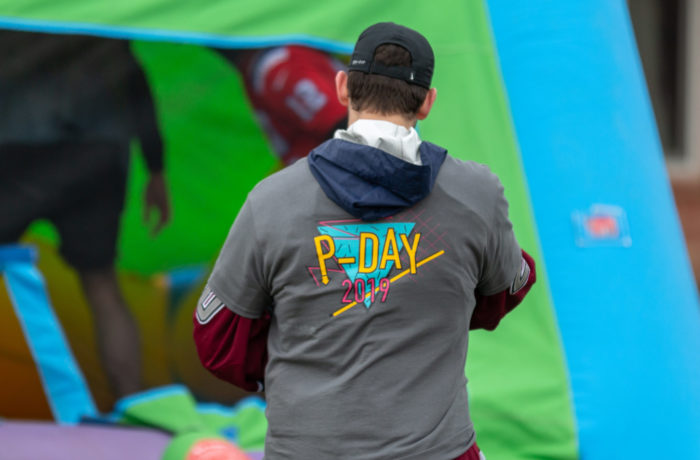
By Drew Beckwith
Staff Writer
St. Michael’s College welcomed social justice activist S. Lee Merritt for a talk on activism on Thursday, Jan. 25. Professors and students packed McCarthy Arts Center to hear “The Consequence of Being Silent.” Afterwards, students and professors voiced their own opinions.
Merritt grew up in South Central Los Angeles, CA, an area where the Rampart Division of the police department was one of the most notoriously violent in the country. In 1991, during Merritt’s childhood, a black man named Rodney King was severely beaten by Los Angeles police while in custody. Under arrest King was tased twice, followed by excessive baton strikes. King suffered skull fractures, a broken ankle and multiple bruises. Merritt witnessed this case go viral through a videotape and police were excused with little consequence. riots ensued. “Being raised [during] this era made me want to be a part of this solution,” he said. The event inspired Merritt to be a social justice advocate in fighting for black civil rights.
Merritt graduated from Morehouse College in Atlanta, Georgia, and later studied law at Temple University. “It’s worth noting that the year that I graduated law school is the year that George Zimmerman was acquitted for the murder of Trayvon Martin,” he said. Merritt made up his mind at this point to pursue justice. He currently practices law in several regions: the US District Court for the District of New Jersey, the Commonwealth of Pennsylvania, federally in Eastern District of Pennsylvania, US District Court of the Northern District of Texas and the State of New Jersey.
Merritt also talked about a case in Northern Texas where a black 15-year-old, Jordan Edwards, went to a house party with his brothers. When police officers arrived to break up the party, they felt threatened when Jordan and his brothers who were leaving the party, backed up towards the police cruiser. The officers proceeded to fire five shots at the approaching vehicle, penetrating the vehicle and killing Jordan. Merritt also said he believes the body camera footage from the officers proved that the officers committed an unlawful act. Merritt believes police officers work in a system that doesn’t punish them correctly for their wrong doings.
Microphones were passed throughout the crowd, giving the opportunity for students to voice their opinions. Students explained how they have grown up through white privilege and have never been actively aware of the actual accounts of police brutality that happen within our society. “The discussion was informative and important that Merritt discussed the untold side of police brutality,” said Eva Wilton ’19.
“I was disappointed he didn’t have more to say about his motivations for speaking out. Doing so would have made it clearer why breaking the silence about injustice is so important,” Doug Slaybaugh, a St. Michael’s history professor, said.
Merritt said his goal in giving his talks is to touch on three things. First, he wants to address the magnitude of the problems in society today. Second, he wants to empower people to address the solutions to these problems and lastly to enlighten people with insight from occurring cases that they hear about on social media but don’t necessarily learn what results from the case.


